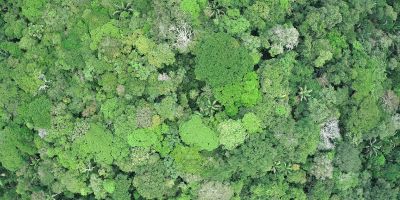New policies target illegal logging and trade to protect forests

Illegal logging has severe effects on wildlife, biodiversity and the climate. Professor Oliver Phillips contributes to a new policy brief that offers new, improved methods to stop it.
‘New pathways for reducing global illegal logging’ is published in Forest Ecology and Management.
Professor Oliver Phillips is a co-author alongside Yude Pan of USDA Forest Service and Richard Birdsey of Woodwell Climate Research Center, USA.
Impacts of illegal logging on the climate
Illegal logging and associated trade (ILAT) contributes to deforestation and the destruction of protected habitats. This impacts species of animals and plants and degrades biodiversity.
Forests store large amounts of carbon—releasing this through illegal logging has consequences for carbon emissions and climate change.
Although there have been many attempts to prevent ILAT, it has been difficult to measure and target.
New policy approaches
In the paper, the researchers argue that now is an opportune moment to step up ILAT prevention.
New monitoring technologies and a more inclusive definition of ILAT mean that it can be measured with more accuracy and detail.
This includes the assessment of ILAT’s impact on the environment, economy and communities, which will support calls to action.
Technology identifies and prevents illegal logging
In the policy brief, the researchers emphasise the need to use innovative technology to measure illegal logging (on a small and large scale) and its impacts, and to identify illegal timber during trade.
In particular, China is the leading importer of timber and has advanced technology and has committed to ban ILAT. If it comprehensively identifies wood with illegal origins, it will place pressure on exporting countries to ensure that logging regulations are met.
Although the policy brief highlights the current technology’s ability to prevent illegal logging, it calls for greater scientific investigation too to address data gaps for policymakers and governments.
Professor Phillips commented “Illegal logging is a key driver of tropical deforestation and degradation. Our analysis shows that hundreds of millions of tonnes of carbon are lost each year due to illegal tropical timber, which weakens Earth’s vital carbon sinks.”
The authors call for ILAT to be included in global initiatives to stop deforestation and biodiversity loss, and for much greater local and global cooperation to support the cause.
More information
- Read ‘New pathways for reducing global illegal logging’ in Forest Ecology and Management
- More research on forests by the Faculty of Environment.




